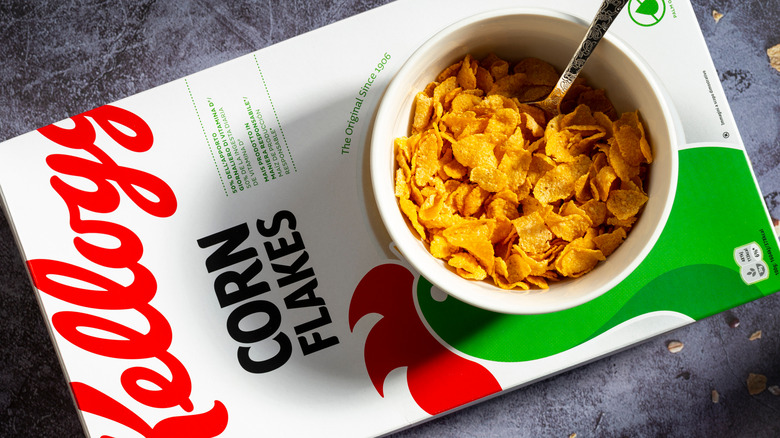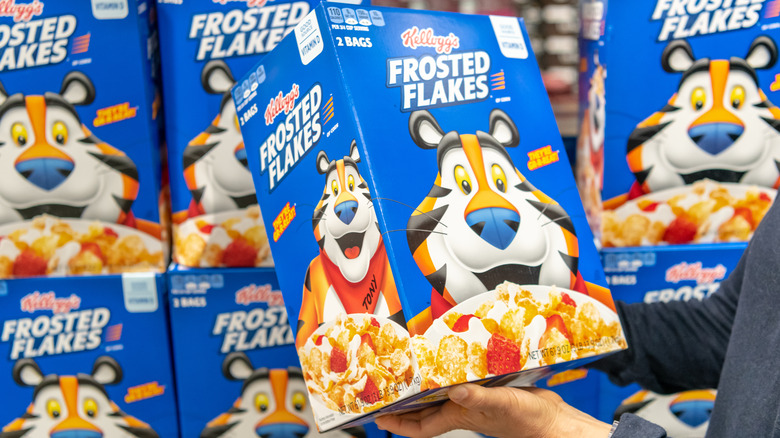Here's How Kellogg's Plans To Fend Off Cereal Shortages Amid Strike
Cereal is the sort of pantry staple that you could never imagine not being able to find at a supermarket. But then again, that's what you probably thought about toilet paper, and we all know how that turned out as soon as the first mention of a nationwide lockdown was made in the U.S. (via NC State University). It turns out, Kellogg's is going through a lot of trouble to ensure that there's plenty of Frosted Flakes, Fruit Loops, Rice Krispies, and Corn Flakes for your morning bowl of cereal.
In October, roughly 1,400 workers at Kellogg's manufacturing plants in four U.S. states — Michigan, Tennessee, Nebraska, and Pennsylvania — went on strike, effectively halting a great deal of cereal production in the country (via The Guardian). The workers are represented by the Bakery, Confectionery, Tobacco Workers, and Grain Millers International Union (BCTGM) and decided to protest after Kellogg's revealed its intention to lay off 212 out of roughly 390 workers at a plant in Michigan in order to order to move production elsewhere.
Kellogg's has yet to make a deal with the BCTGM union workers. You may be wondering, then, how the company has managed to ensure a dependable supply of cereal in the market. It turns out, Kellogg's has had to look outside the country for its own products (via Eat This, Not That!).
Kellogg's has been importing cereal from Europe and Latin America
Since the beginning of the strike on October 5, the BCTGM Negotiation Committee has met with Kellogg's in an effort to come to an agreement. However, the union rejected Kelloggs' "last best and final offer" in early November on the grounds that the company's proposed deal was not good enough to put to a vote (via Fox17). Following the rejection, Kellogg's filed a lawsuit against the BCTGM union in Omaha, Nebraska, arguing that union members were interfering with the ability of vehicles to enter and exit the Nebraska manufacturing plant (via CNBC).
There don't appear to be any plans for further negotiations at the moment. With a growing rift between workers, union members, and the cereal maker, Kellogg's is partly relying on international facilities to keep U.S. shelves stocked. In a statement to Eat This, Not That!, a Kellogg's spokesperson said that the company is "sourcing production from our cereal plants overseas, both from Europe and Latin America." Operations are also ongoing at the four plants where union members went on strike, as some third-party employees have resumed working so as to not lose out on their contracts (via Bloomberg).

